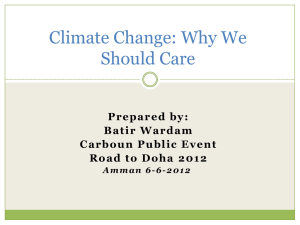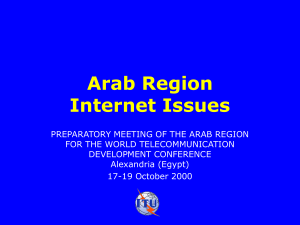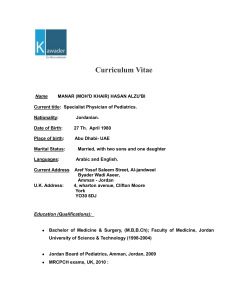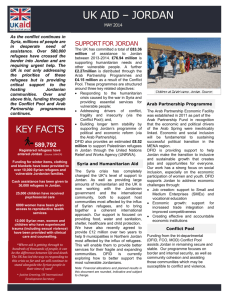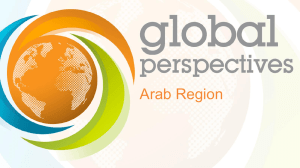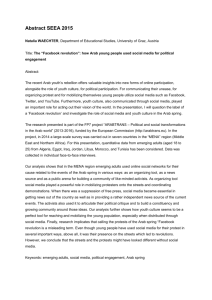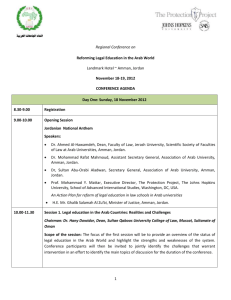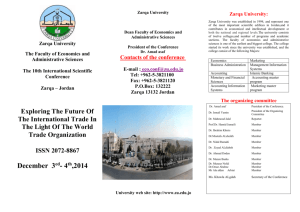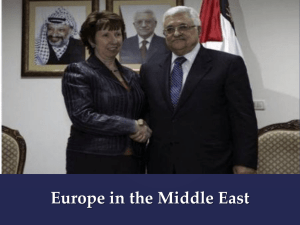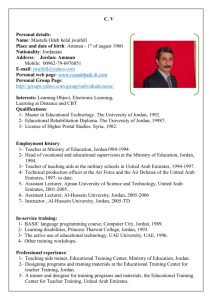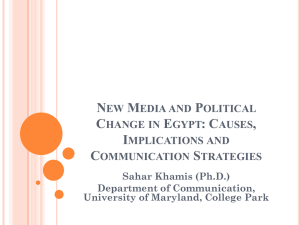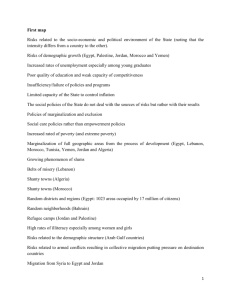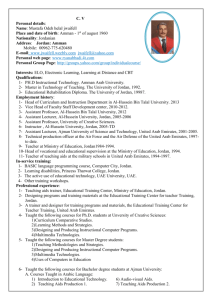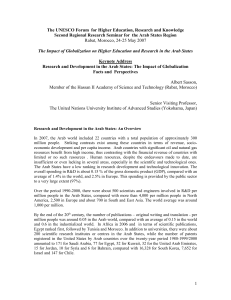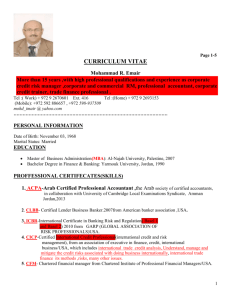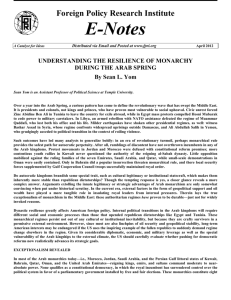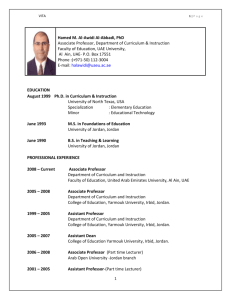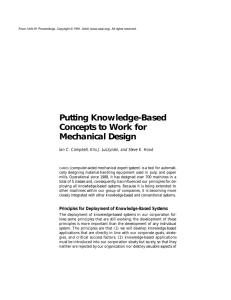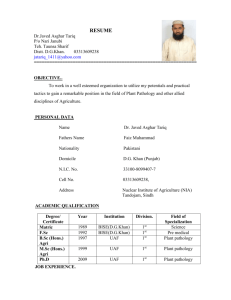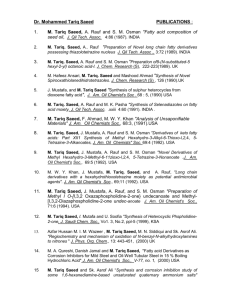Tariq Tell - American University of Beirut
advertisement
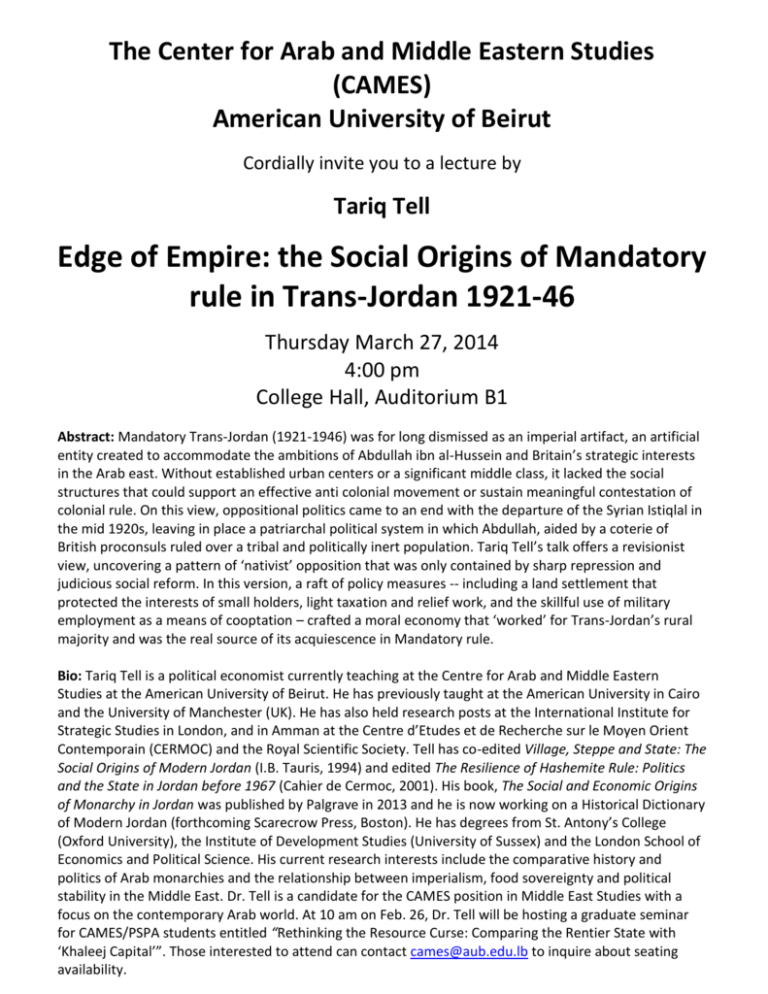
The Center for Arab and Middle Eastern Studies (CAMES) American University of Beirut Cordially invite you to a lecture by Tariq Tell Edge of Empire: the Social Origins of Mandatory rule in Trans-Jordan 1921-46 Thursday March 27, 2014 4:00 pm College Hall, Auditorium B1 Abstract: Mandatory Trans-Jordan (1921-1946) was for long dismissed as an imperial artifact, an artificial entity created to accommodate the ambitions of Abdullah ibn al-Hussein and Britain’s strategic interests in the Arab east. Without established urban centers or a significant middle class, it lacked the social structures that could support an effective anti colonial movement or sustain meaningful contestation of colonial rule. On this view, oppositional politics came to an end with the departure of the Syrian Istiqlal in the mid 1920s, leaving in place a patriarchal political system in which Abdullah, aided by a coterie of British proconsuls ruled over a tribal and politically inert population. Tariq Tell’s talk offers a revisionist view, uncovering a pattern of ‘nativist’ opposition that was only contained by sharp repression and judicious social reform. In this version, a raft of policy measures -- including a land settlement that protected the interests of small holders, light taxation and relief work, and the skillful use of military employment as a means of cooptation – crafted a moral economy that ‘worked’ for Trans-Jordan’s rural majority and was the real source of its acquiescence in Mandatory rule. Bio: Tariq Tell is a political economist currently teaching at the Centre for Arab and Middle Eastern Studies at the American University of Beirut. He has previously taught at the American University in Cairo and the University of Manchester (UK). He has also held research posts at the International Institute for Strategic Studies in London, and in Amman at the Centre d’Etudes et de Recherche sur le Moyen Orient Contemporain (CERMOC) and the Royal Scientific Society. Tell has co-edited Village, Steppe and State: The Social Origins of Modern Jordan (I.B. Tauris, 1994) and edited The Resilience of Hashemite Rule: Politics and the State in Jordan before 1967 (Cahier de Cermoc, 2001). His book, The Social and Economic Origins of Monarchy in Jordan was published by Palgrave in 2013 and he is now working on a Historical Dictionary of Modern Jordan (forthcoming Scarecrow Press, Boston). He has degrees from St. Antony’s College (Oxford University), the Institute of Development Studies (University of Sussex) and the London School of Economics and Political Science. His current research interests include the comparative history and politics of Arab monarchies and the relationship between imperialism, food sovereignty and political stability in the Middle East. Dr. Tell is a candidate for the CAMES position in Middle East Studies with a focus on the contemporary Arab world. At 10 am on Feb. 26, Dr. Tell will be hosting a graduate seminar for CAMES/PSPA students entitled “Rethinking the Resource Curse: Comparing the Rentier State with ‘Khaleej Capital’”. Those interested to attend can contact cames@aub.edu.lb to inquire about seating availability.
